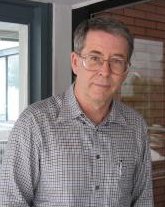
In mathematics, the classification of finite simple groups is a result of group theory stating that every finite simple group is either cyclic, or alternating, or belongs to a broad infinite class called the groups of Lie type, or else it is one of twenty-six exceptions, called sporadic. The proof consists of tens of thousands of pages in several hundred journal articles written by about 100 authors, published mostly between 1955 and 2004.

In mathematics, a simple group is a nontrivial group whose only normal subgroups are the trivial group and the group itself. A group that is not simple can be broken into two smaller groups, namely a nontrivial normal subgroup and the corresponding quotient group. This process can be repeated, and for finite groups one eventually arrives at uniquely determined simple groups, by the Jordan–Hölder theorem.

In the mathematical classification of finite simple groups, there are a number of groups which do not fit into any infinite family. These are called the sporadic simple groups, or the sporadic finite groups, or just the sporadic groups.

In the area of modern algebra known as group theory, the Conway groups are the three sporadic simple groups Co1, Co2 and Co3 along with the related finite group Co0 introduced by (Conway 1968, 1969).

In group theory, a topic in abstract algebra, the Mathieu groups are the five sporadic simple groups M11, M12, M22, M23 and M24 introduced by Mathieu. They are multiply transitive permutation groups on 11, 12, 22, 23 or 24 objects. They are the first sporadic groups to be discovered.

In the area of modern algebra known as group theory, the Lyons groupLy or Lyons-Sims groupLyS is a sporadic simple group of order

Michael George Aschbacher is an American mathematician best known for his work on finite groups. He was a leading figure in the completion of the classification of finite simple groups in the 1970s and 1980s. It later turned out that the classification was incomplete, because the case of quasithin groups had not been finished. This gap was fixed by Aschbacher and Stephen D. Smith in 2004, in a pair of books comprising about 1300 pages. Aschbacher is currently the Shaler Arthur Hanisch Professor of Mathematics at the California Institute of Technology.
In mathematics, a Ree group is a group of Lie type over a finite field constructed by Ree from an exceptional automorphism of a Dynkin diagram that reverses the direction of the multiple bonds, generalizing the Suzuki groups found by Suzuki using a different method. They were the last of the infinite families of finite simple groups to be discovered.
Zvonimir Janko (26 July 1932 – 12 April 2022) was a Croatian mathematician who was the eponym of the Janko groups, sporadic simple groups in group theory. The first few sporadic simple groups were discovered by Émile Léonard Mathieu, which were then called the Mathieu groups. It was after 90 years of the discovery of the last Mathieu group that Zvonimir Janko constructed a new sporadic simple group in 1964. In his honour, this group is now called J1. This discovery launched the modern theory of sporadic groups and it was an important milestone in the classification of finite simple groups.

In the area of modern algebra known as group theory, the Janko groupJ1 is a sporadic simple group of order

In the area of modern algebra known as group theory, the Janko groupJ3 or the Higman-Janko-McKay groupHJM is a sporadic simple group of order

In the area of modern algebra known as group theory, the Janko groupJ4 is a sporadic simple group of order

In the area of modern algebra known as group theory, the Janko groupJ2 or the Hall-Janko groupHJ is a sporadic simple group of order
Janko is a surname and given name.
In mathematics, a quasithin group is a finite simple group that resembles a group of Lie type of rank at most 2 over a field of characteristic 2. The classification of quasithin groups is a crucial part of the classification of finite simple groups.

In the area of modern algebra known as group theory, the Mathieu groupM22 is a sporadic simple group of order

In group theory, the term pariah was introduced by Robert Griess in Griess (1982) to refer to the six sporadic simple groups which are not subquotients of the monster group.
In number theory, Jordan's totient function, denoted as , where is a positive integer, is a function of a positive integer, , that equals the number of -tuples of positive integers that are less than or equal to and that together with form a coprime set of integers
In the mathematical classification of finite simple groups, a thin group is a finite group such that for every odd prime number p, the Sylow p-subgroups of the 2-local subgroups are cyclic. Informally, these are the groups that resemble rank 1 groups of Lie type over a finite field of characteristic 2.

Dieter Held is a German mathematician. He is known for discovering the Held group, one of the 26 sporadic finite simple groups.





